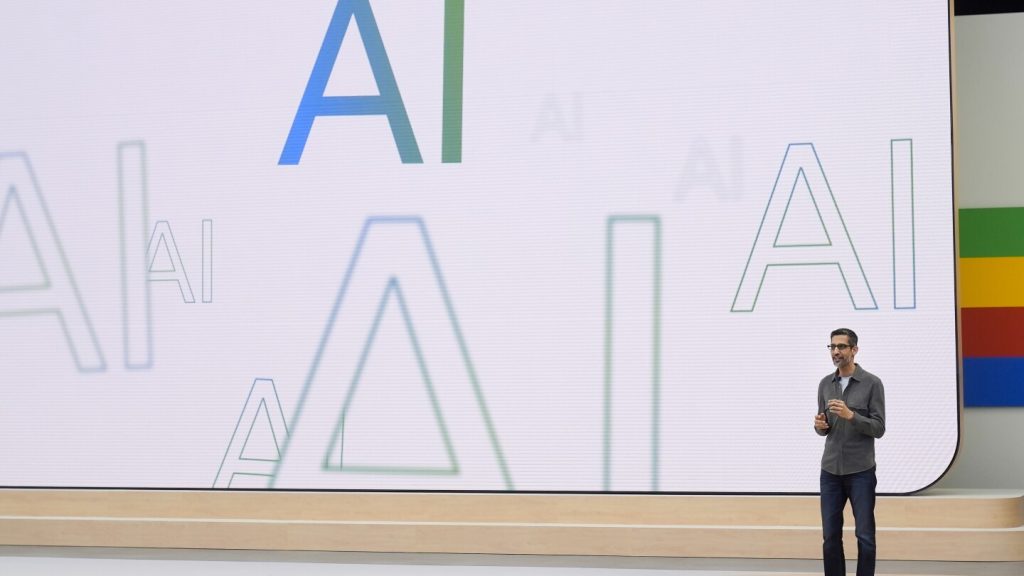Google’s latest updates to its search engine involve injecting more artificial intelligence to enable users to voice questions about images and organize search results. These changes, known as AI Overviews, aim to make search more convenient by providing summaries written by AI technology at the top of search results. However, concerns have been raised by publishers about reduced traffic to their websites due to the AI Overviews. Google is responding to these worries by adding more links to other websites within the summaries.
A recent analysis by BrightEdge found that while the AI Overviews are driving less traffic to general news publishers, they are benefiting specialized sites like Bloomberg.com and the National Institute of Health. Google’s decision to increase AI integration in its search engine highlights the company’s commitment to technology as the driving force behind its future. This shift comes as Google faces competition from AI alternatives like ChatGPT and Perplexity that are positioning themselves as answer engines.
The next phase of Google’s AI evolution builds upon its Lens feature that processes queries about objects in a picture. Lens, which generates over 20 billion queries per month, is particularly popular among young users aged 18 to 24. Google is aiming to attract this demographic as it competes with other AI-powered search options. Users will now be able to use Lens to ask questions in English about items viewed through a camera lens, with the option of receiving search results. This new voice-activated search feature is part of Google’s efforts to make search more accessible and user-friendly.
Despite the potential convenience of AI technology in search, there are concerns about the accuracy of information provided. Google has faced criticism for AI Overviews that have given misleading advice, such as recommending putting glue on pizza and eating rocks. The company has attributed these errors to data voids and online manipulation. Google is confident in its AI’s capabilities and will rely on the technology to determine what information to feature on the results page. Initially, AI will be used to organize results for queries about recipes and meal ideas in English, with results grouped into clusters of photos, videos, and articles on the subject.
Google’s focus on AI integration reflects the company’s dedication to staying at the forefront of technological advancements. As the search engine continues to evolve, the goal is to make search more efficient and accessible to users. With the incorporation of AI Overviews and voice-activated search features, Google aims to simplify the search process and provide relevant information to users in a more convenient manner. Despite past challenges with misinformation, Google is confident in its AI technology’s ability to improve search results and enhance the user experience.


